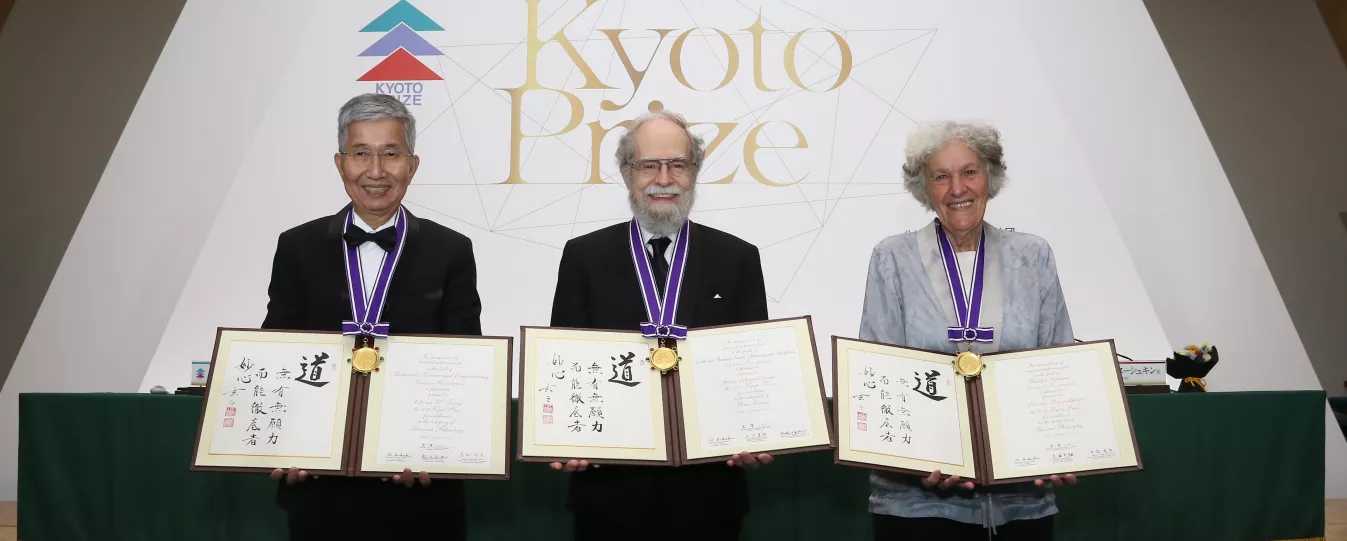The 2021 Kyoto Prize at Oxford celebrated the scientific discoveries and artistic innovations of the Kyoto Prize Laureates across the fields of astrophysics, chemistry and theatre. Following the postponement of last year’s event due to COVID-19, the 2019 Laureates convened online for this year’s edition of the event, as always organised by the Blavatnik School of Government.
Joined by audiences logging in from across the globe, the Laureates shared insights into their outstanding careers in a series of public lectures, each of which was followed by an exclusive Q&A.
Professor Ching Tang, whose work led to the widespread use of organic light-emitting diodes (OLEDs) in display technology – from smartphones to TVs – shared his journey of ‘searching for light’, walking the audiences through the science and evolution of OLEDs and what the future might hold for this evolving technology.
Professor James Gunn shared the story behind his work on the Sloan Digital Sky Survey, the largest astronomical survey which has created the most detailed three-dimensional maps of the universe ever made. He also reflected on the changes he has witnessed in the field of astrophysics over the decades.
Ariane Mnouchkine, founder and director of the Théâtre du Soleil, spoke about the experiences that led her to receiving the Kyoto Prize and paid tribute to the lives and stories of others who made it possible for her to reach where she is today. She also discussed the Théâtre du Soleil’s non-hierarchical approach and its deeply embedded values of community and collaboration.
Unique to the Kyoto Prize at Oxford is the Laureates’ panel discussion, which sees all three Laureates engage in a conversation with Professor Ngaire Woods, Dean of the Blavatnik School of Government. For the first time, this year’s panel discussion was open to the public. Some of the themes explored included what it means to be human in a rapidly changing world, and how we can prepare future generations for the challenges yet to come. While raising challenging questions, the Laureates alluded to the immense potential of what humans can achieve when they collaborate and strive for the common good.
All of the sessions were recorded and are available to watch on the Blavatnik School of Government YouTube channel.
We look forward to the announcement of the 2021 Kyoto Prize Laureates, which will take place in June this year, and to celebrating their achievements during the Kyoto Prize at Oxford in May 2022.
